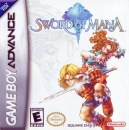wfz said:
Not everyone can pay that larger upfront price, even if they wanted to buy the game and keep it forever. This simple reason is why we have month payment options for expensive devices such as phones and now video game consoles (360). Are they going to start offering monthly payment options for consumers who can't put up that higher cost up front?
Those consumers simply will not buy the product and instead will buy it cheaper second-hand. This is destroying your consumer base for profitability...
|
People who can't afford 10-20 € in extra price are the people who, today, cannot afford to buy more than one game. Those people would be able to resell games in order to buy new ones, so the resale of games also takes care of that "problem"...
Here's another way to look at the whole digital distribution thing... It allows publishers to get a bigger cut of the game (no retailer in the middle). They can put this extra revenue into mitigating whatever negative effects these consumer rights have on them.
In the end, consumers should have a right to sell something they own, and no amount of crying from the publishers should change that (and hopefully it won't). It is this way for every industry in the world whether their products degrade or not... In the end a good game will still sell many copies because many people will want one, and the used market cannot multiply the number of existing copies (only piracy can).



















































